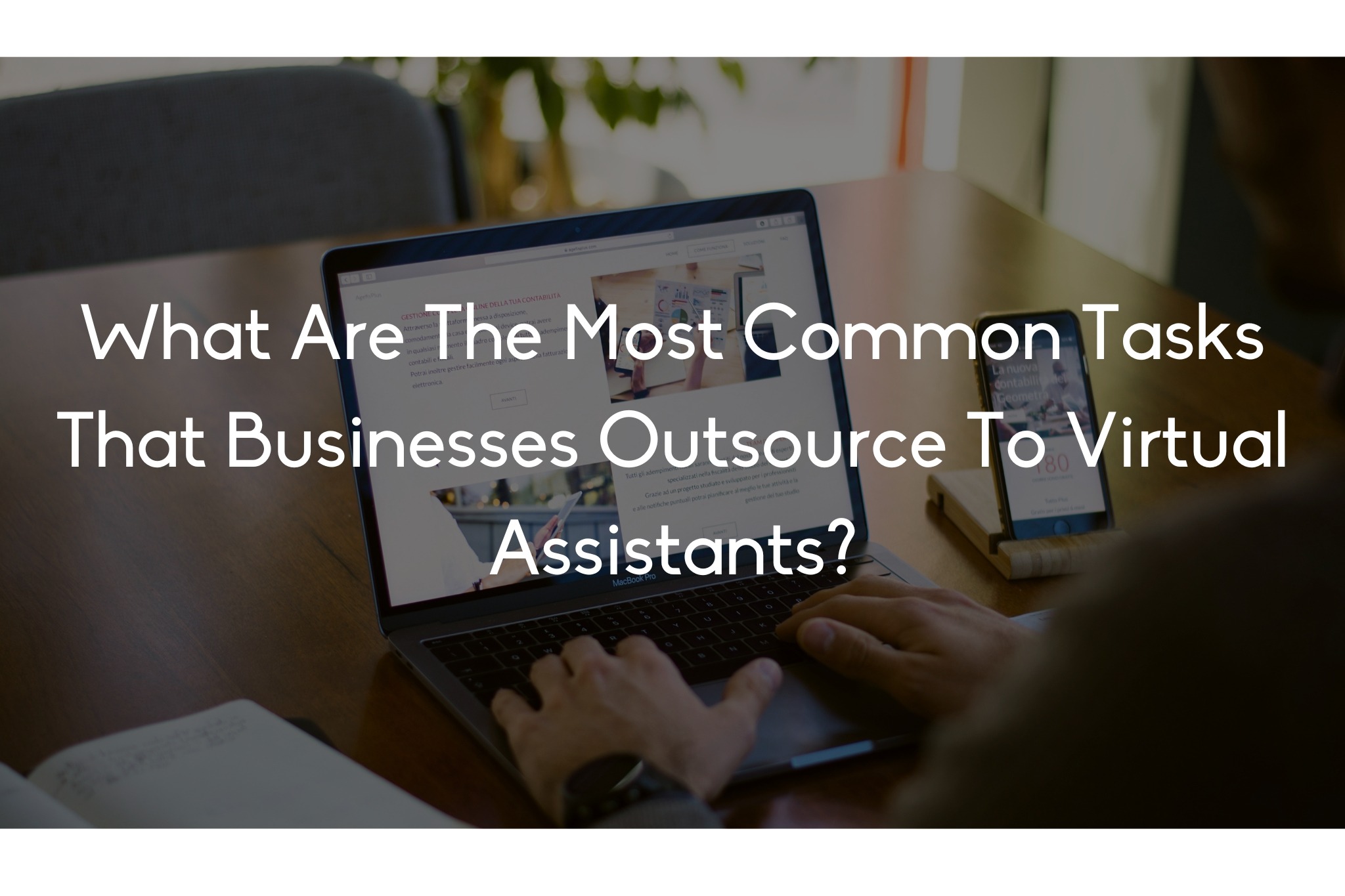
Running a business is no easy task, and as entrepreneurs and companies seek to grow while keeping costs in check, many turn to virtual assistants (VAs) for support. Once seen as a luxury for large corporations, virtual assistants have now become a valuable resource for small and medium-sized businesses (SMBs) as well. So, what exactly are businesses outsourcing to VAs?
Today, virtual assistants are taking on far more than basic administrative duties. From customer service to social media management and beyond, the scope of a VA’s role has greatly expanded. By outsourcing these tasks, businesses are able to stay productive, reduce expenses, and concentrate on the core areas that need their attention. But what are these tasks, and how are VAs making an impact?
In this post, we’ll delve into the most common tasks that businesses, particularly SMBs, are assigning to virtual assistants. We’ll take a closer look at the everyday functions VAs handle, emerging outsourcing trends, and how VAs help businesses streamline operations and stay competitive.
Virtual assistants have long been associated with administrative support, and this remains one of their primary functions. But what exactly does this entail, and why is it still so widely outsourced?
Business owners often delegate tasks like managing emails, scheduling meetings, and organizing travel arrangements to virtual assistants. These are essential yet time-consuming activities that can easily pile up. Entrepreneurs, in particular, know how overwhelming it can be to sift through a cluttered inbox, keep track of appointments, or book travel. By offloading these tasks to a VA, they can focus on strategic growth and running the business efficiently.
Though these tasks may seem simple, they are vital for maintaining organization. A missed meeting or an overlooked email could mean a missed opportunity. With a virtual assistant on board, the risk of such mistakes is reduced, helping businesses stay on track and professional.
As businesses extend their reach online, the volume of customer inquiries rises. Whether it’s through email, chat support, or social media, managing these interactions effectively is crucial. Virtual assistants are increasingly taking on these customer service roles, handling queries, addressing common issues, and escalating more complex concerns to the appropriate departments.
One key benefit of outsourcing customer service to a VA is flexibility. Instead of hiring a full-time employee to manage fluctuating workloads, businesses can rely on a VA who can adjust as needed. Additionally, since virtual assistants often operate in various time zones, companies can offer 24/7 service, improving response times and enhancing customer satisfaction.
Customer service goes beyond solving problems—it’s about building relationships. When businesses outsource this function to virtual assistants, they ensure that customers feel valued and heard, all while keeping costs in check.
In today’s digital age, maintaining a strong social media presence is no longer optional for businesses—it’s essential. Yet, managing the constant flow of posts, comments, and engagement data can be overwhelming for entrepreneurs and small business owners. This is where virtual assistants come in.
Virtual assistants can take charge of content creation, post scheduling, and follower interaction on behalf of businesses. They ensure that the content aligns with the company’s brand and values, while also keeping an eye on analytics to determine what resonates with the audience. Whether managing Instagram, Twitter, Facebook, or LinkedIn, a skilled virtual assistant can lighten the load of daily social media management.
The advantage of outsourcing social media tasks is clear—businesses can maintain a consistent online presence without getting bogged down by the details. Virtual assistants keep brands visible and engaging while allowing business owners to focus on growth.
For many business owners, bookkeeping is one of the most dreaded tasks. Tracking expenses, managing invoices, and preparing financial reports can be both time-consuming and complicated, requiring a certain level of expertise.
Virtual assistants with a specialization in bookkeeping can handle tasks such as entering transactions, reconciling bank statements, and preparing profit and loss reports. This allows businesses to maintain accurate financial records without the need to hire a full-time accountant. A VA experienced in bookkeeping ensures that finances are well-organized and up-to-date, freeing the business owner from the burden of managing these tasks personally.
Outsourcing bookkeeping not only saves time but also enhances accuracy. Financial errors can be costly, and having a VA handle these responsibilities helps ensure that businesses remain compliant and informed about their financial health.

Another common task businesses outsource to virtual assistants is research and data entry. Whether it’s conducting market research, gathering contact information, or compiling data for a project, virtual assistants can dig through the details that often slip through the cracks when businesses are pressed for time.
For example, if a business is looking to expand into a new market, a virtual assistant can gather data on competitors, potential customers, and market trends. They can also help businesses keep their databases up-to-date, entering new leads, customer details, and other information into CRM systems.
Outsourcing research and data entry ensures businesses can access the information they need without having to divert their attention from more pressing tasks. A VA’s ability to comb through large volumes of data and extract actionable insights is invaluable for decision-making and strategic planning.
In today’s digital landscape, marketing is more than just social media. From email campaigns to content creation and SEO management, businesses are finding that virtual assistants can take on a wide range of digital marketing tasks.
For instance, a VA might draft and schedule newsletters, research keywords for SEO, or even create blog posts to boost a company’s online presence. With the proper training and tools, virtual assistants can contribute significantly to a company’s marketing efforts. Businesses, especially those with smaller teams, benefit from outsourcing these marketing tasks, as it allows them to stay competitive without stretching their in-house resources thin.
Virtual assistants also help businesses implement marketing automation systems, such as email drip campaigns and CRM integration, ensuring that customer engagement stays high while manual intervention remains minimal.
It’s not just business tasks that get outsourced to virtual assistants—many entrepreneurs and small business owners outsource personal tasks as well. From booking personal appointments to managing a busy household schedule, VAs are increasingly being trusted with personal to-dos that take time away from running the business.
For instance, a business owner might ask a VA to plan a family vacation, organize a home office, or order supplies online. By delegating these personal errands, entrepreneurs can achieve better work-life balance while staying focused on the tasks that grow their businesses.
Virtual assistants have become indispensable assets to businesses across the globe. They allow companies to stay efficient, reduce operational costs, and focus on growth without compromising on essential day-to-day operations. From administrative support to digital marketing and even personal errands, the range of tasks that can be outsourced to virtual assistants continues to expand as their expertise grows.
For businesses looking to stay competitive in an ever-changing market, hiring a virtual assistant could be the key to unlocking more productivity and success.